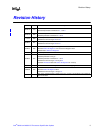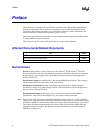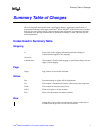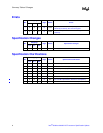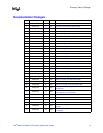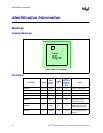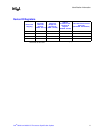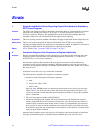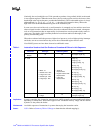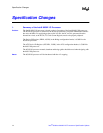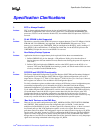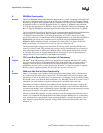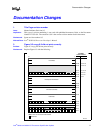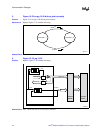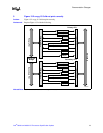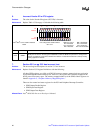
Intel
®
80303 and 80302 I/O Processors Specification Update 13
Errata
Nominally, the emul multiplies two 32-bit operands to produce a long ordinal (64-bit) result stored
in two adjacent registers. When the errata occurs, the low-order register receives the correct value,
but the high-order register becomes scoreboarded indefinitely. The scoreboarded register is always
odd-numbered (i.e., g1, g3, g5, ..., r7, r9, r11, ...) since the emul instruction always directs the
high-order result to the odd-numbered register of the destination pair.
In some cases, the result of the mulo or muli instruction is corrupted, too, but such has never been
observed apart from the scoreboard failure. Once the scoreboard failure has occurred, subsequent
mulo or muli instructions that are separated by load instructions can also produce faulty results in
some cases. The details of this secondary behavior has not been studied as thoroughly as the
primary scoreboarding issue.
When the scoreboard stalls the processor, higher-level processes, such as higher-priority interrupts
and faults, can run as normal unless they access the scoreboarded register and also stall.
Not all 80303 processors have been observed to exhibit this errata.
Implication: Systems containing this instruction sequence may exhibit sporadic and unrepeatable stall failures
depending on where these instructions appear in the executable memory image and the runtime
dynamics as they affect the Icache.
Workaround: Avoid this sequence of instructions in systems that employ the instruction cache.
Status: NoFix. Refer to Summary Table of Changes to determine the affected stepping(s).
Table 1. Instruction Versions that Can Produce a Scoreboard Failure in this Sequence
Instruction Data Type Addressing Mode Format
1. Extended
Multiply
All n/a emul reg/lit, reg/lit, reg
2. Load
•Word - ld
• Ordinal short - ldos
• Integer short - ldis
• Ordinal byte - ldob
• Integer byte - ldib
• Absolute
Displacement
• Register Indirect with
Displacement
• Index with
Displacement
ld exp, reg
ld exp(reg), reg
ld exp[reg*scale], reg
ldos exp, reg
ldos exp(reg), reg
ldos exp[reg*scale], reg
ldis exp, reg
ldis exp(reg), reg
ldis exp[reg*scale], reg
ldob exp, reg
ldob exp(reg), reg
ldob exp[reg*scale], reg
ldib exp, reg
ldib exp(reg), reg
ldib exp[reg*scale], reg
3. Multiply • Ordinal
• Integer
n/a
mulo reg/lit, reg/lit, reg
muli reg/lit, reg/lit, reg



